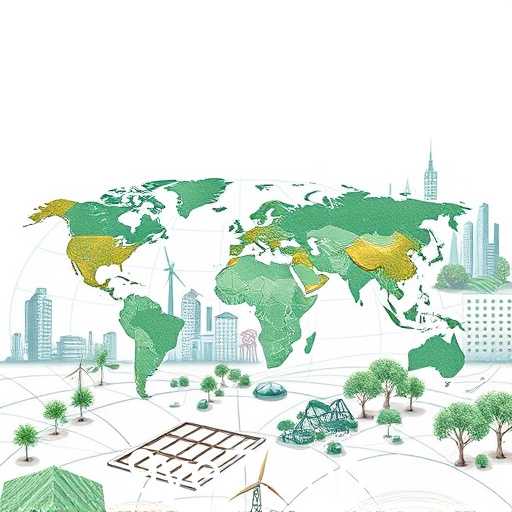As the world progresses through a turbulent decade, the global economy finds itself at a crossroads. Emerging from the pandemic with renewed vigor, yet facing new challenges in the form of climate change and geopolitical tensions, nations are reevaluating their economic strategies to adapt to this evolving landscape.
In recent years, climate policy has taken center stage in international discussions as countries grapple with the ever-increasing effects of global warming. With the adoption of stricter emissions targets, economies are under pressure to transition toward more sustainable practices. This shift is expected to reshape industries, encourage the growth of green technologies, and drive innovation across sectors. The success of these initiatives remains contingent upon effective international cooperation and significant investment from both public and private sectors.
Technological innovation continues to play a pivotal role in shaping economic dynamics worldwide. Advancements in artificial intelligence, renewable energy, and digital infrastructure are creating new opportunities for growth, while also posing challenges, such as job displacement and regulatory concerns. As businesses and governments navigate this technological landscape, the focus remains on harnessing innovation to drive sustainable economic development.
International relations are also influencing economic trends, as trade tensions and geopolitical rivalries create uncertainties in the global market. The rise of protectionist policies and the reshaping of trade alliances have compelled countries to rethink their economic partnerships and explore new avenues for collaboration.
Amid these challenges, there are opportunities for countries to redefine their economic strategies. By prioritizing sustainable development, fostering innovation, and strengthening international ties, the global economy can chart a path toward resilience and prosperity in the years ahead.








